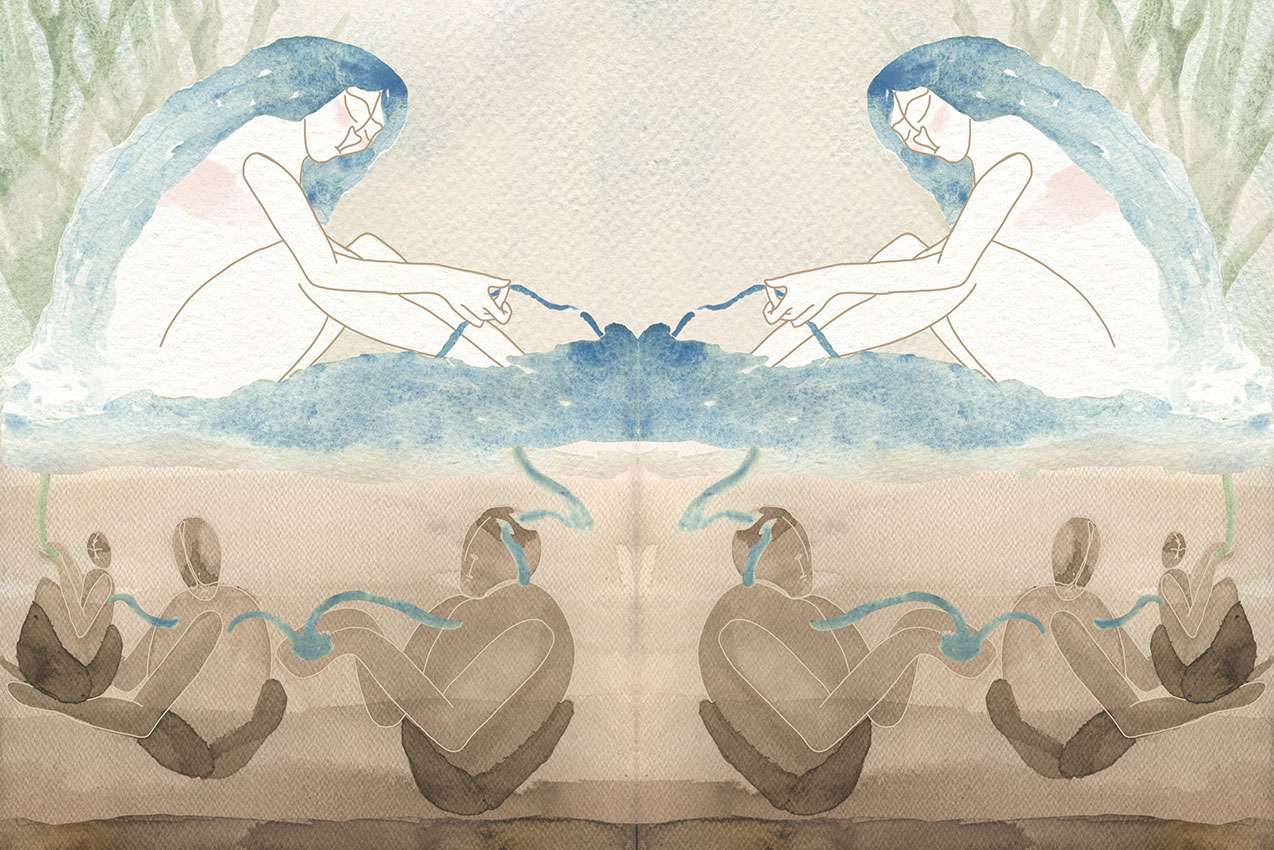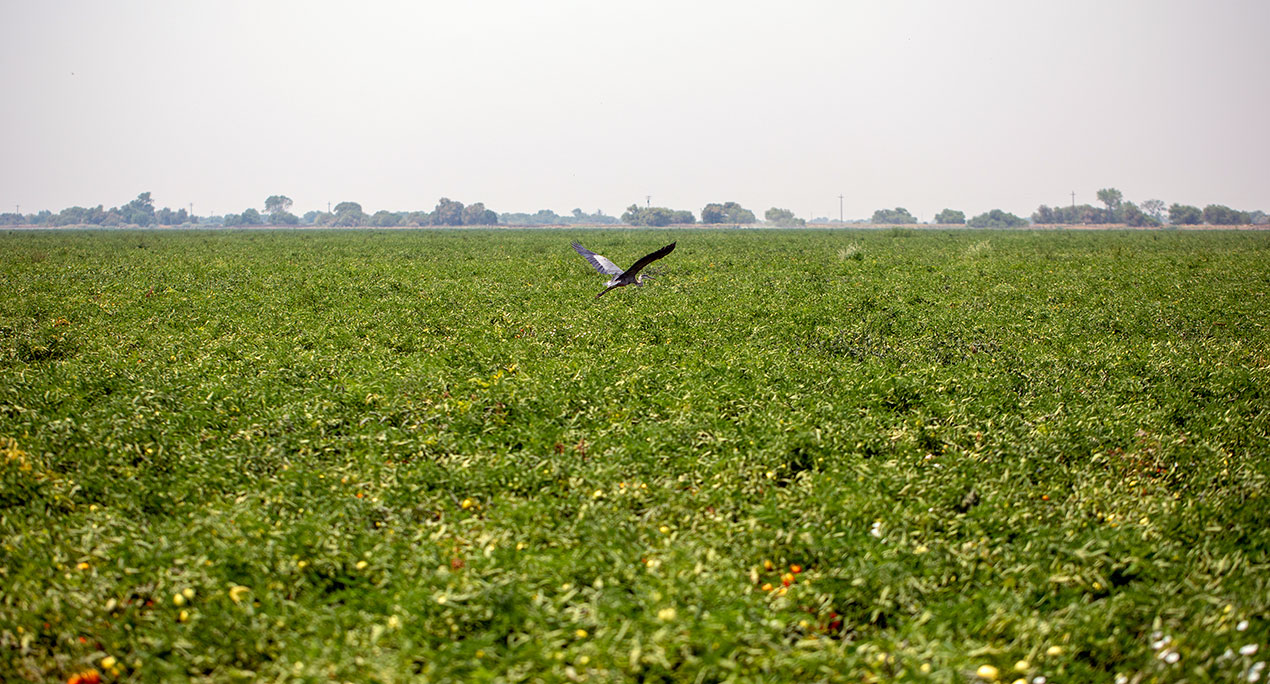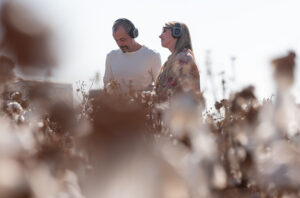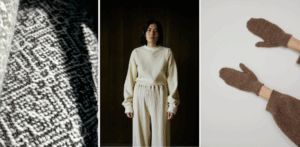2020 Wool & Fine Fiber Symposium
Healthy Soil & Sea: Changing the Flow of Fashion

2020 Symposium Videos Now Available
All videos from the 2020 Symposium are now available to watch on Fibershed’s Youtube channel: just visit our Symposium playlist and browse the options. We also compiled resources mentioned in the presentations and during the chat: please click here to access the 2020 Symposium resource list. You can also scroll down to learn more about the work of participating speakers and panelists.
Spotlight Speakers & Panels
Day 1, November 12, 2020:
9:00 AM Fireside Chat: Oceans & Climate Connections with Dr. Ayana Elizabeth Johnson
- 10:15 AM Panel: Following the Plastic Flow: From the oil industry to our wardrobes to the ocean
- Diane Wilson, author and shrimp-boat captain who has campaigned against plastic production pollution for decades
- Kirstin Miller, founder of Eco City Builders, co-developer of the Closet Survey for Climate & Ocean Health Project
- Diana Lin, PhD, Senior Scientist at San Francisco Estuary Institute
- Moderated by Krystle Wood, technical textile consultant and founder of Materevolve
- 10:15 AM Panel: Native Fiber Systems: How plant fibers have been and continue to be harvested to enhance ecosystem function
- Fred Briones, Founding Director of the Native American Fiber Program at the Regenerative Agriculture Foundation, enrolled tribal member at the Big Valley Rancheria Band of Pomo Indians
- Louie Garcia, weaver from the Piro Manso Tiwa tribe of Guadalupe Pueblo
- Alice Lincoln-Cook, artist, Chair of the California Indian Basketweavers’ Association, and member of the Karuk Tribe
- Moderated by Tiśina Parker, designer and mixed California Native: Southern Sierra Miwuk of Yosemite, Mono Lake Kucadikadi Paiute and Kashia Pomo tribes
- 11:50 AM Presentation: Fiber Visions – understanding reciprocity with Dogbane
- 12:00 PM Showcase: Northern California Fibershed Producer Network – a behind-the-scenes look at local fiber farming and product offerings
Day 2, November 13, 2020:
9:00 AM Spotlight speaker on soil health: Dr. Cindy Daley on Changing Agricultural Practices to Reduce Nitrogen Pollution
- 10:15 AM Panel: Pathways of Water & Soil: How natural fibers can be produced in a way that restores watershed health, reducing nitrogen use and eutrophication
- Dr. Lorrie Flint, Research Hydrologist at USGS California Water Science Center
- Pam Krone, Agriculture Water Quality Coordinator for Monterey Bay National Marine Sanctuary and California Marine Sanctuary Foundation
- Janaki Jagannath, co-founder of the California Farmer Justice Collaborative
- Gibson Durnford, East of Hudson Agricultural Program Coordinator, Watershed Agricultural Council
- 10:15 AM Panel: Black Fiber Systems: Exploring pre-colonial materials and modern practices
- Moderated by Teju Adisa-Farrar, writer and equity consultant
- Sha’Mira Covington, PhD candidate researching intersections of Black fashion, decolonization and globalization
- Amber Tamm, farmer, horticulturalist and floral designer working and healing with the earth
- 11:50 AM Presentation: Fiber Visions – regenerating soil health with Cotton
- 12:00 PM Showcase: Northern California Fibershed Producer Network – a behind-the-scenes look at local fiber farming and product offerings
Day 3, November 14, 2020:
9:00 AM Spotlight speaker: the Garment Worker Center on Uplifting Our Regional Fiber System
- 10:15 AM Panel: Regionally grown, Regionally Made, Regionally Worn
- Jon Long, Carolina Textile District Representative
- Taylor Jay, founder of Taylor Jay Collection
- Italia Hannaway, Sustainable Fashion Designer of Italia A Collection
- Speaker and member of the Garment Worker Center (details coming soon)
- Moderated by Adrian Rodrigues, Stewardship Committee Lead for the Regional Fiber Manufacturing Initiative
- 11:50 AM Presentation: Fiber Visions – Wool by way of grazing for fire & climate resilience
- 12:00 PM Showcase: Northern California Fibershed Producer Network – a behind-the-scenes look at local fiber farming and product offerings
The 9th annual Fibershed Symposium focused on how natural fiber and dye systems can positively impact soil and sea.
From the landscape to the seascape, the largest active carbon pools on planet earth are where we humans work, and where the impacts of our lives are made evident. When textiles are drawn from fossil carbon reserves and spun into plastic clothing, we see ripple effects from climate destabilization to microplastic pollution. Extractive industries undermine our value systems — from the pressures of overproduction on garment workers to the excesses of disposable clothing.
In land-based fiber and dye systems, we see living examples that restore soil health and change the course of fashion and agriculture’s impact on waterways. Reconnecting to bioregional and cultural models of production, we can contribute to our oceans’ health and well-being, our soils, our manufacturing sector, and our fiber and dye sovereignty.
We heard from scientists, community leaders, landscape managers, and designers: together, we grew our understanding of:
- Why the modern wardrobe is damaging life in the soil and sea
- How natural fiber and food systems can be managed to enhance soil and watershed health, including on-the-ground examples from Northern California and Fibershed Affiliates
- Ways in which Indigenous fiber stewardship and Black-centered fiber traditions are in a relationship with ecosystems
- What it would look like to meet our clothing needs and provide fair compensation to all who contribute to fiber, fabric, and finished goods
The symposium was an entirely virtual event with engaging presentations and interactive elements.
Share Your Symposium Experience: #2020WoolSymposium
We invite you to join in on social media as we share sneak peeks and updates leading up to the Symposium. Share your reflections and connections using #2020WoolSymposium on social media throughout the events and activities.




